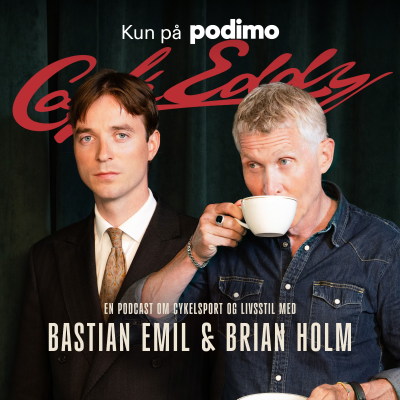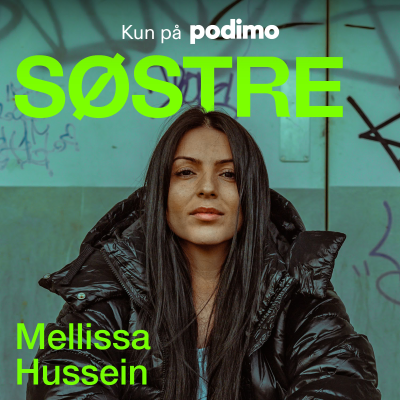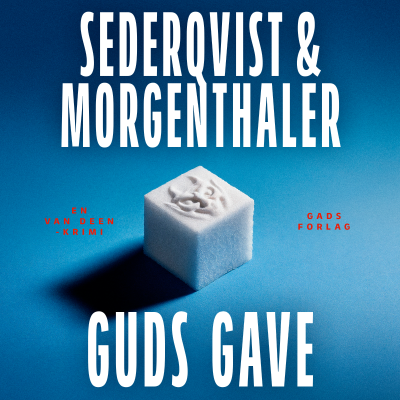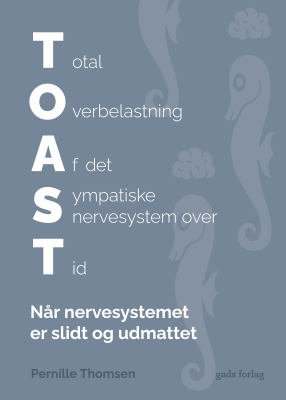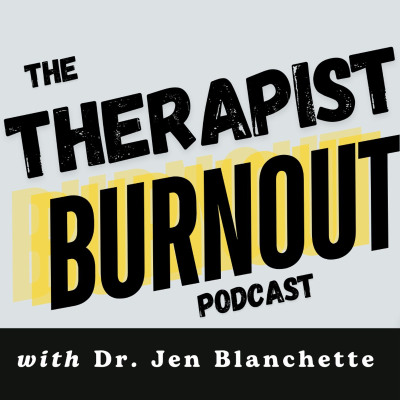
Therapist Burnout Podcast: Mental Health, Business, and Career Tips for Therapists, Counselors, & Psychologists
engelsk
Business
Begrænset tilbud
2 måneder kun 19 kr.
Derefter 99 kr. / månedOpsig når som helst.
- 20 lydbogstimer pr. måned
- Podcasts kun på Podimo
- Gratis podcasts
Læs mere Therapist Burnout Podcast: Mental Health, Business, and Career Tips for Therapists, Counselors, & Psychologists
Are you a Therapist, Counselor, Coach, Psychologist, or Trauma Professional dealing with burnout or compassion fatigue? Do you own your private practice and it's full and you're miserable? Are you working with too many clients in an agency or group practice? Are you considering quitting the profession all together? If so, you've found the right podcast, we will answer the following questions: Am I suffering from burnout? What are the symptoms of therapist burnout? What other things can I do besides therapy or working 1:1 with clients? What other roles or jobs could I do after my career as a therapist or helper? What other business ideas can I explore besides private practice or agency work?
Alle episoder
109 episoder104. Overbooked and Overwhelmed: Therapist Burnout Edition
Join my Therapist Pen Pal list (free): https://balanced-thunder-281.myflodesk.com/drjenb Overbooked & Overwhelmed (again): How to Prune What You Can When Your Calendar Feels Impossible In this episode, I’m revisiting a topic I first talked about last year: what to do when you look at your calendar and genuinely can’t see how you’re going to make it through the week. I’m naming the backdrop we’re all living inside of (what some people are calling a “polycrisis”) and why it matters that we stop pretending our overwhelm exists in a vacuum. Then I take you into a simple (not easy) starting point: notice what’s depleting you, and prune what you can—without needing a perfect plan or a five-step system. IN THIS EPISODE, WE TALK ABOUT: * A quick 2020 story (my cancelled “Cinderella’s castle” 40th birthday moment) and why the 2020s have felt like a relentless era * The concept of a “polycrisis” and why therapists have been bracing for years * Why you can’t live in nervous system dysregulation forever (your body has a limit) * What brain injury recovery taught me about burnout recovery: it’s rarely “one fix”—it’s ongoing listening + experimenting * The burnout reckoning: “When can I function like I used to?” (and why that question can keep you stuck) * The practical starting point: * Notice depletion * Identify what’s non-negotiable vs. optional * Prune what you can * The “come to Jesus” questions: * What is this pace doing to your body in 6 months? * What is it doing to your patients, your partner, your kids, your life? * How resentment shows up internally (and why it’s human)—and when you’re past “just do more consultation” * Why “doing less” does not mean you care less * Cognitive overload + sensory input (especially your phone), and how to titrate it down without going cold turkey * Concrete examples of pruning: * fewer evening sessions * dropping one non-essential obligation * simplifying meals/snacks so you’re not running on fumes * delegating home tasks (yes, even feeding the dog) * pausing trainings/certifications when you have no bandwidth A GENTLE PROMPT TO TRY (FROM THE EPISODE) If you can (and not while driving): Look at your calendar and just sit with it for a minute. Then ask: * What do I dread every week? * What is the cost of continuing to do it like this? * What’s truly non-negotiable… and what’s optional even if it doesn’t feel optional? * What’s one small thing I can prune this week? KEY LINE FROM THIS EPISODE Doing less does not mean you care less. It may be the exact thing that helps you care more—because it protects your capacity. MENTIONED / REFERENCED * “Polycrisis” (the idea that multiple crises are happening at once and compounding) * Cognitive burnout + constant input (especially phone use / scrolling) STAY CONNECTED * Therapist Pen Pal list: https://balanced-thunder-281.myflodesk.com/drjenb * Email: info@drjenblanchette.com * LinkedIn: Find me at Dr. Jen Blanchette
103. When Everyone Around You Is Burned Out: A Burnout Story with dbtkiki
Burnout Story: Today, I’m joined by Dr. Kiki Fehling (aka @dbtkiki), a psychologist, author, and DBT expert (Linehan board-certified). Kiki shares the burnout story that started in grad school and became impossible to ignore after an unexpected heart attack at 29 during internship. We talk about what happens when your body forces a reckoning, why therapists normalize burnout so hard, and how Kiki ultimately built a career teaching DBT skills outside the therapy room through writing, speaking, and content creation. We also get into the reality of being a clinician “in these internet streets” — ethical gray areas, overwhelm, and why content creation isn’t a quick burnout escape hatch. In this episode: * Medical trauma as a catalyst for change * DBT’s “life worth living” question (and what it reveals) * The therapist burnout elephant we name but don’t unpack * Identity shifts: quitting, not quitting, and letting it evolve * Social media ethics + boundaries for clinicians Links & resources: * Dr. Kiki Fehling: https://www.kikifehling.com/ [https://www.kikifehling.com/] * Follow Kiki: @dbtkiki * APA social media guidelines (PDF): https://www.apa.org/about/policy/guidelines-optimal-use-social-media.pdf [https://www.apa.org/about/policy/guidelines-optimal-use-social-media.pdf?utm_source=chatgpt.com] * Join my Therapist Pen Pal list: https://balanced-thunder-281.myflodesk.com/drjenb [https://balanced-thunder-281.myflodesk.com/drjenb]
102. Burnout, Pivots, and Why You Don’t Have to Do This Alone
JOIN LEAVING THE CHAIR (REGISTRATION CLOSES SAT, JAN 31 AT MIDNIGHT): https://balanced-thunder-281.myflodesk.com/jhvxnbroxe [ https://balanced-thunder-281.myflodesk.com/jhvxnbroxe] In this quick episode, I’m recapping the live webinar I just hosted on burnout and pivots — and what surprised me most wasn’t the content… it was the honesty in the questions. A lot of therapists who showed up were already in motion: closing their practice, leaving a job, or standing right on the edge of a big change. And it reminded me how common this really is — and how heavy it feels when you’re trying to figure it out alone. I also share why I’m opening my 12-week group experience, Leaving the Chair, and how it’s designed to be supportive (not content-heavy) for therapists who are trying to make real decisions in the middle of burnout. IN THIS EPISODE, I COVER WHAT CAME UP ON THE WEBINAR * Why the questions weren’t casual — they were vulnerable and real * The themes I keep attracting: practice closure, leaving therapy, and “I can’t do this anymore” * How much life it gave me to hold space with therapists who get it MY BIGGEST TAKEAWAYS 1. Burnout makes decision-making feel impossible 2. When you’re fried, your brain treats everything like danger — and it’s hard to trust yourself. 3. “What job should I do?” isn’t the real question 4. There are infinite options — the deeper work is learning what your body and life can hold right now. 5. Your pivot doesn’t have to be dramatic 6. A slower move can be more sustainable (unless your body is forcing an emergency exit). 7. The Career Traffic Circle (broad strokes) * Stop / pause (sabbatical, medical leave, real break) * Slow down (reduce intensity, reduce clients, contract work) * Bridge (off-ramp immediate income or on-ramp training) * Full pivot (usually later — after stabilization) 8. Identity grief is real 9. Untethering from “I am a therapist” can bring grief, confusion, and shame. 10. Termination and closure always come to the table 11. Client reactions, ethical goodbyes, and the emotional load of wrapping up. 12. The biggest problem is doing it alone 13. This is hard work — and isolation makes it heavier. JOIN ME INSIDE LEAVING THE CHAIR Leaving the Chair is a 12-week group experience for therapists who want support making a pivot — without panic decisions. * Starts: Friday, February 6 * Meets: Fridays at 2:00 PM Eastern * Investment: $950 * Includes: 12 group sessions + 4 guided workshops + supportive circles focused on space, feedback, and decision support (not content overload) * Spots available: 5 * Registration closes: Saturday, January 31 at midnight 👉 Register here: https://balanced-thunder-281.myflodesk.com/jhvxnbroxe [https://balanced-thunder-281.myflodesk.com/jhvxnbroxe] WANT MY WEEKLY NOTES ON BURNOUT + PIVOTS? Join my Pen Pal list here: https://balanced-thunder-281.myflodesk.com/drjenb [ https://balanced-thunder-281.myflodesk.com/drjenb] QUESTIONS? REACH OUT * Email: info@drjenblanchette.com * LinkedIn: @drjenblanchette (DM me — I’ll reply) CLOSING NOTE If you’re in the “I can’t do this anymore” season, you’re not failing — you’re overloaded. And you don’t have to make these decisions by yourself.
101. 5 Therapist Burnout lessons in 3 years of podcasting
After nearly three years of talking with therapists about burnout (and living my own recovery in real time), I wanted to pause and name what I keep seeing underneath the surface — especially for therapists who feel stuck, spinning, or quietly wondering if they can keep doing 1:1 work. IN THIS EPISODE: * Burnout isn’t just exhaustion — it’s losing your aliveness * Therapist burnout isn’t a personal failure — it’s a systems problem * Spinning isn’t indecisiveness — it’s nervous system overload * You don’t need a dramatic pivot to move forward * You can be good at your job and still not be able to do it anymore ALSO MENTIONED: * Burnout vs depression (and why real support matters) * Menopause + mental health * Cognitive burnout, digital overload, and modern life * Why doing less can be the most radical move in burnout recovery LINKS + WAYS TO STAY CONNECTED Therapist Pen Pal List: https://balanced-thunder-281.myflodesk.com/drjenb [ https://balanced-thunder-281.myflodesk.com/drjenb] Free Pivot Call (Mon Jan 26 @ 2pm ET) — replay available: https://balanced-thunder-281.myflodesk.com/hidsgfobza [ https://balanced-thunder-281.myflodesk.com/hidsgfobza] Submit a question for the Pivot Call (anonymous option): https://forms.gle/Hs5GYYKFFMP45xmn9 [ https://forms.gle/Hs5GYYKFFMP45xmn9] Leaving the Chair (Group Program) — starts Feb 6 | Fridays at 2pm ET: https://balanced-thunder-281.myflodesk.com/jhvxnbroxe [ https://balanced-thunder-281.myflodesk.com/jhvxnbroxe]
100. What I've learned about Burnout (with Micah Freeman)
Quick note: Enrollment is open for Love It or Leave It (Leaving the Chair). Closes January 30 (at the time of recording). Join Love It or Leave It (Open Enrollment): https://balanced-thunder-281.myflodesk.com/jhvxnbroxe [https://balanced-thunder-281.myflodesk.com/jhvxnbroxe] Book a consult call (limited availability): https://calendar.app.google/JBkK3aUPXyvxr46F7 [https://calendar.app.google/JBkK3aUPXyvxr46F7] ABOUT THIS EPISODE Micah Freeman interviews Jen for Episode 100. We talk about milestones, burnout (in real life), cognitive overload, and why so many therapists are done with 1:1 as it’s currently structured. WHAT WE COVER * What 100 episodes actually feels like (and why “arrival” doesn’t land the way we expect) * The arrival fallacy and the “have done list” * Jen’s current relationship with burnout and learning to be gentler with herself * Cognitive burnout: screens, tabs, constant input, nervous system fatigue * The added layers for many therapists: caregiving, emotional labor, hormones/menopause * Why Jen started studying burnout before becoming a psychologist (therapeutic foster care) * Burnout vs depression and the overlap in symptoms * Therapist isolation, clinical grief, and why support matters * Community, meaning, and the messy middle of spirituality/faith * Why listener emails and reviews matter more than you think A FEW LINES THAT STUCK * “Earth School is very hard.” * “There are only so many times you can walk through fire and not get burned.” * “I wanted to give it the breadth of time. 100 felt like doing that.” REFLECTION QUESTIONS * What am I waiting to achieve so I can finally feel okay? * What would be on my “have done list” this year? * What’s burning me out most: work, life load, cognitive overload, or all of it? * What would a sustainable next step look like (not a dramatic pivot)? GUEST Micah Freeman Website: egostrength.net Podcast: the self-study lab
Vælg dit abonnement
Begrænset tilbud
Premium
20 timers lydbøger
Podcasts kun på Podimo
Gratis podcasts
Opsig når som helst
2 måneder kun 19 kr.
Derefter 99 kr. / måned
Premium Plus
100 timers lydbøger
Podcasts kun på Podimo
Gratis podcasts
Opsig når som helst
Prøv gratis i 7 dage
Derefter 129 kr. / måned
2 måneder kun 19 kr. Derefter 99 kr. / måned. Opsig når som helst.






